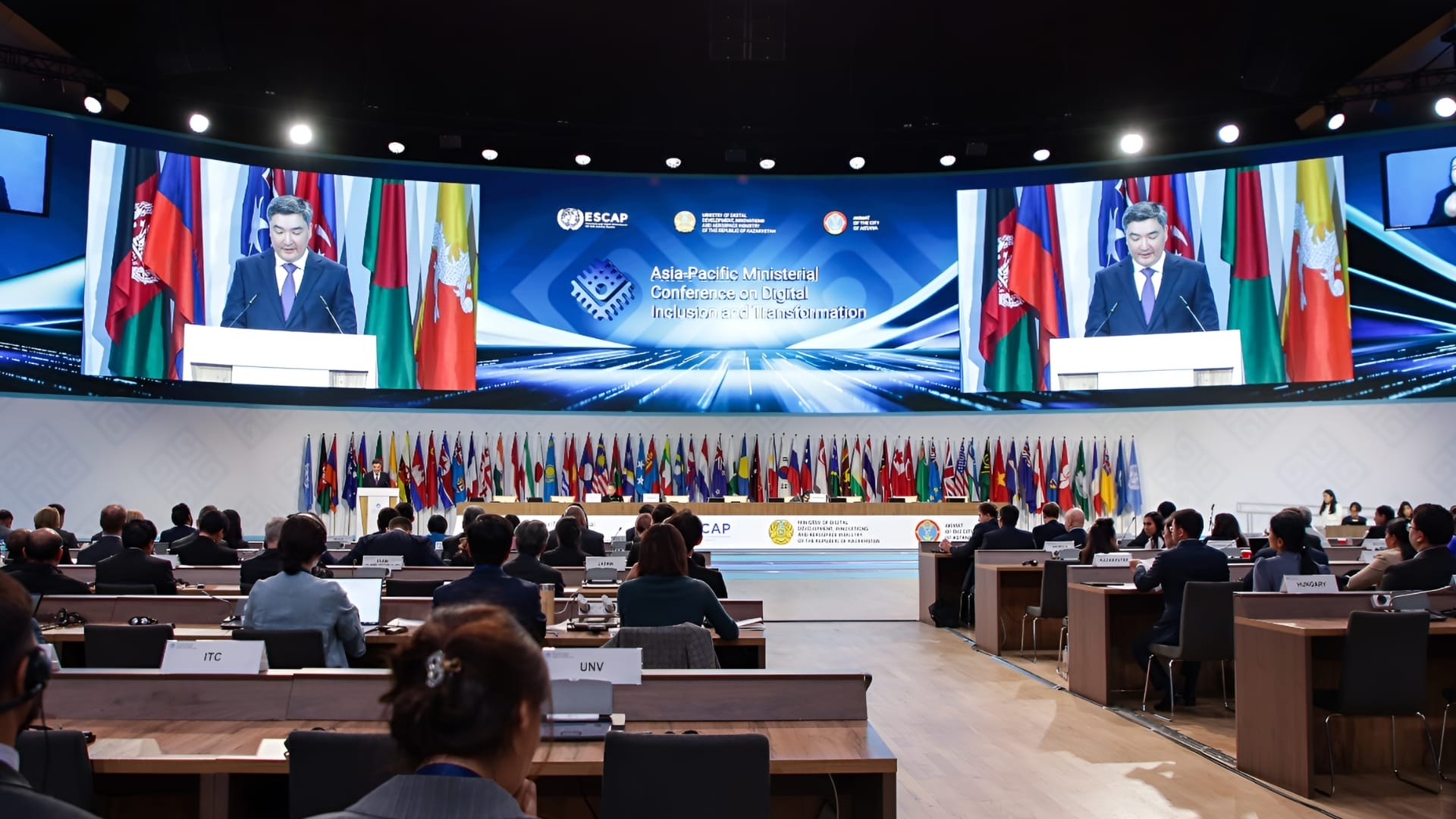Asia-Pacific leaders pledge to bridge digital divide and drive sustainability
Asia-Pacific leaders endorse the Astana Declaration, pledging to bridge the digital divide and foster sustainability through digital cooperation.

Governments across the Asia-Pacific region have committed to working together on innovative solutions to reduce the digital divide and promote sustainability. Ministers and heads of digital technology agencies endorsed the Astana Ministerial Declaration on Digital Inclusion and Transformation at the Asia-Pacific Ministerial Conference on Digital Inclusion and Transformation. The high-level conference, organised by the United Nations Economic and Social Commission for Asia and the Pacific (ESCAP) and the Government of Kazakhstan, was held in Astana on 3–4 September.
Table Of Content
Declaration to address the digital divide
The Astana Declaration highlights the urgent need to bridge the digital divide, enhance digital connectivity, and build trust in digital systems. It also emphasises the importance of creating inclusive and sustainable digital economies, ensuring that no one is left behind.
“The Declaration is an important milestone that reaffirms the necessity of strengthening regional policy-making so that we increase momentum in identifying digital solutions and scaling up to bridge the digital divide,” said Armida Salsiah Alisjahbana, United Nations Under-Secretary-General and Executive Secretary of ESCAP.
While 96 per cent of the population in Asia and the Pacific live in areas with mobile broadband network coverage, a significant number do not fully benefit from internet services. Estimates suggest that only one-third of the population uses these services productively, with up to 40 per cent lacking basic digital skills.
The Declaration acknowledges these challenges and calls for governments to address barriers faced by developing countries, such as improving the enabling environment, boosting connectivity infrastructure, and increasing investments. It also stresses the need for secure and affordable access to the internet, as well as promoting digital literacy for youth, older adults, women, people with disabilities, and those living in remote or rural areas.
Kazakhstan’s leading role in the digital future
Kazakhstan played a pivotal role in this significant event, with H.E. Zhaslan Madiyev, Minister of Digital Development, Innovations, and Aerospace Industry of Kazakhstan, chairing the conference. Madiyev noted the importance of Kazakhstan’s achievements in the digital sector and emphasised the shared responsibility to build a more inclusive digital future.
“We are proud of this unique opportunity to showcase Kazakhstan’s achievements in digital government to the global community. The adoption of this Declaration reflects our shared commitment to creating an inclusive digital future for all,” Madiyev said.
Kazakhstan also put forward a proposal to establish a Digital Solutions Centre for Sustainable Development, which aims to strengthen cooperation among various stakeholders and contribute to the region’s sustainable development through digital transformation. The proposal was met with approval by the conference attendees.
Ministers also reviewed progress on other regional initiatives, particularly the Action Plan for Implementing the Asia-Pacific Information Superhighway Initiative, 2022–2026, which aims to enhance digital cooperation across the region further.
Partnerships and collaborations
In addition to official discussions, the conference featured a startup alley organised by Astana Hub, the largest technology park in Central Asia. This platform gave participants the chance to explore innovative projects and cutting-edge technologies from Kazakhstan’s leading startups and major tech companies.
Further boosting regional cooperation, ESCAP and the Eurasian Development Bank (EDB) signed a Memorandum of Understanding (MoU). This agreement will strengthen collaboration on regional economic integration and the 2030 Agenda for Sustainable Development. Under the MoU, ESCAP and EDB will work together on joint research, capacity building for policymakers, and developing tools and databases to assist decision-makers in developing countries throughout Asia and the Pacific.
The conference showcased a strong commitment to cooperation and innovation, setting the stage for a more inclusive and sustainable digital future for the Asia-Pacific region.
















